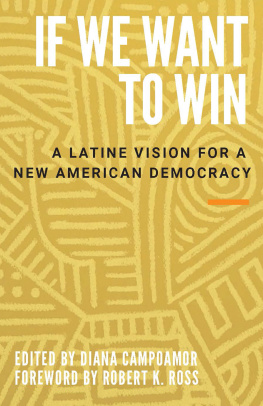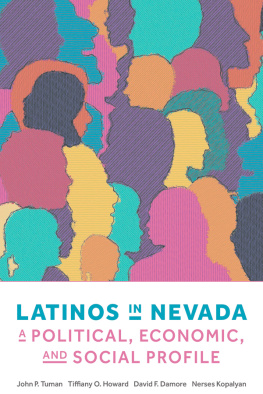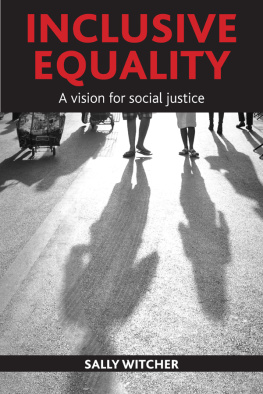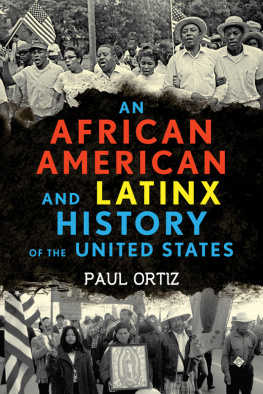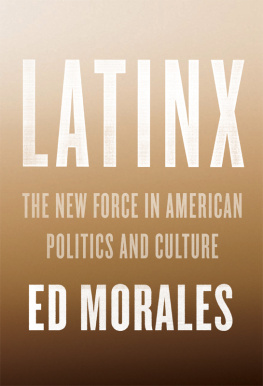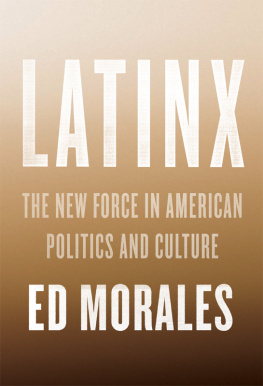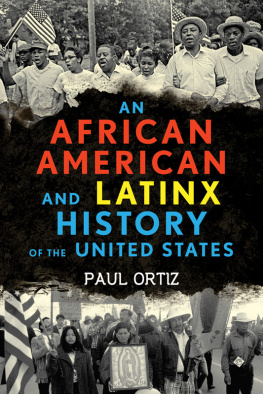Contents
Page List
Guide
IF WE WANT TO WIN
IF WE WANT
TO WIN
A LATINE VISION FOR A NEW
AMERICAN DEMOCRACY
EDITED BY DIANA CAMPOAMOR
CONTENTS
by Diana Campoamor
by Robert K. Ross, MD
Hon. Nellie M. Gorbea
Markos Moulitsas Zniga
Matt Nelson
Hector Mujica
Anjanette Delgado
Carmen Barroso and Daniel Parnetti
Robert K. Ross, MD
Mnica Lozano
Julio Marcial
Mary Skelton Roberts
Olga Garay-English
Alexandra Aquino-Fike and Reavey Fike
Nelson I. Coln
Ana Gloria Rivas-Vzquez
Ana Marie Argilagos
PREFACE
When my son Pablo was nine, we moved from Miami to San Francisco. One day, he came home from school and asked me, Mami, are we Chicanos?
Were not, I said. Were Cuban Americans, but what does it mean if someone thinks youre a Chicano?
It means were poor and live in a ghetto, he blurted without pause. At the time, I worked with a group of Chicano Ivy League-educated public interest lawyers, many of whom came from modest but loving families, and vibrant and richly diverse communities. They were powerful, skilled, resourceful, and effective. What narrative was driving the message Pablo received? It was the same that decades later would label Mexicans as rapists and gang members, and justify putting children in cages. In the absence of authentic narrative, prejudice and negativity fill the void.
This book is meant to help remedy the lack of accurate portrayals of who we are as individuals, families, and communities. These omissions are a form of disempowermentin essence, a message that we dont belong. But if we are to take a leap into a new democracy that empowers everyoneif we want to win in the global realm of democratic ideals and human rightswe must include everyone. Indeed, Latines are actively writing the next chapter in the story of the United States and the Americas.
Born at a moment of historic social and political change, this collection of essays seeks to offer authentic portrayals, shape policies, and advance social justice. Latine experts are too often overlooked or underrepresented in U.S. public discourse, and in these pages Latine thought leaders share strategies for change in this decade. If we are to get past the racism, xenophobia, and polarization that have diminished our democracy, we must write a new story about the Americas, one where all our voices help us to win the challenges confronting our societies, our planet.
Through these essays, we contribute to that renewed vision by including the Latine presence in our shared American story. We weave our policies and personal narratives into the fabric of the United States. We write from the perspective of practitioners who work, day in and day out, not only in politics and voter engagement, but also in the arts, the environment, social and racial justice, philanthropy, and immigration, as well as about the ties between U.S. Latines and their countries of origin. And we call on other activists, especially from communities of color, to lift their stories for inclusion in this new American narrative that is emerging from the wreckage of the recent past. (We have included, in the back of this book, an activists guide to writing your narrative for social change.)
Suffice it to say that there is no one Latine story that represents our diversity and, indeed, no common term that is accepted by all communities. The reader will note a number of terms currently in use, from Hispanicsa controversial term for some because it refers to the legacy of colonization by Spainand Latino to Latinx and Latine. We selected Latine for the title of this book because it is gender neutral, is a new trend both in Spanish and English, and reflects the preference of the younger generation that we hope will read and use this book.
Who are we, these Latine communities we write about? Were 61 million Americans, or 18 percent of the 2019 population, according to the U.S. census. Most of us are native-born Americans who speak English as our first language. We are 52 percent of the U.S. population growth in the decade from 2010 to 2019, according to the Pew Research Center. In that period, the South added 4.7 million Latines, an increase of 26 percent. In Western states, the number of Latines increased by 3 million, or 14 percent, while in the Midwest and Northeast our numbers increased by 18 percent, 900,000 and 1.3 million, respectively.
Among U.S. Latines, Mexican Americans are the overwhelming majority at 62 percent. They live mostly in the West and U.S.Mexico border states, but there are more than 800,000 in the Chicago metro area, where Latinos are now the largest racial or ethnic group. In the New York City area, there are 2.5 million Latine people, or 29 percent of the areas population. Of those Latines, there are 29 percent each of Puerto Ricans and Dominicans, followed by Mexicans, with 14 percent, and Central and South Americans combined, with 23 percent, according to the American Sociological Association.
People of Puerto Rican origin, including those who live on the island, are a much smaller but still second-largest group nationally at just under 10 percent of Latine. By 2018, Florida (at 1,128,000 people) had surpassed New York (1,113,000) as the leading state for Puerto Ricans. But Puerto Rican populations have also grown in Indiana and Washington state, according to a Hunter CUNY Center for Puerto Rican Studies report. Based on UN population data, Worldometers.info showed the population of Puerto Rico having declined a stunning 22 percent from 3.67 million in 2001 to 2.86 million in 2020.
People of Cuban and Salvadoran heritage are each 4 percent of the U.S. Hispanic total. Florida is home to the largest share of them, with 1.5 million Cubans, followed by California, New Jersey, Texas, and New York. Many Salvadorans have settled in the Washington, DC, Maryland, and Northern Virginia areas, as well as Southern California. Dominicans largely reside in the Northeast, such as Rhode Island, Connecticut, and Pennsylvania, as well as Florida. They make up 3.4 percent of U.S. Latines. The immigrants and their descendants from other countries of Central and South America represent the remaining 16 percent.
As we look at the future, the browning of America becomes more evident. Census projections show that by 2045 one in four Americans will be of Latine descent. Two of our largest states are leading the trend, and their Latine voters are increasing their share of the electorate. California is already majority minority; Texas was expected to become majority Hispanic by 2022.
Given the pandemic and its devastating impact on the nation, it is no surprise that Latines top election issues were COVID-19, healthcare, and jobs and the economy. Although former President Donald Trump succeeded in drawing Latine support by raising the specter of communism in Floridas voter-rich and heavily Cuban American Miami-Dade County, and also gained fans among rural conservative Latine voters in Texass Rio Grande Valley, most Latines favored President Joe Biden. Latinas and other women of color lined up solidly behind Biden. While Latines made up one in eight eligible voters nationally, an impressive 40 percent of those Latine voters were eighteen to thirty-five years old, NBC News pointed out, citing census data.

